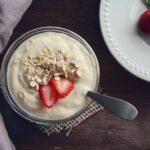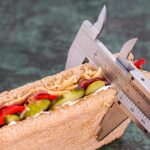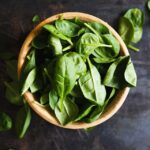We all know that a balanced and nutritious diet is essential for good health. But did you know that what you eat can also have a significant impact on the health of your hair? Hair loss is a common problem that affects millions of people worldwide, and many factors can contribute to it. However, your diet could be one of the leading causes of hair loss.
Hair is made up of a protein called keratin, and it needs a constant supply of nutrients to grow and stay healthy. When you don’t get enough of the essential vitamins and minerals your hair needs, it can become weak, brittle, and fall out. Let’s take a closer look at some of the dietary factors that may be contributing to your hair loss.
Lack of Protein:
As we mentioned earlier, hair is primarily made up of protein. Therefore, it’s no surprise that a lack of protein in your diet can lead to hair loss. If your diet is low in protein, your body will prioritize other essential functions over hair growth, resulting in hair loss. Make sure you’re consuming enough protein-rich foods such as eggs, lean meats, fish, beans, and nuts.
Vitamin D Deficiency:
Vitamin D plays a vital role in hair growth, and a deficiency in this essential vitamin can lead to hair loss. Vitamin D helps your body absorb calcium, which is necessary for healthy hair follicles. You can get vitamin D from sunlight, but it’s essential to consume foods that are rich in vitamin D, such as fatty fish, egg yolks, and fortified foods.
Iron Deficiency:
Iron deficiency is a common cause of hair loss in women. Iron is crucial for healthy blood circulation and carrying oxygen to your hair follicles. Without enough iron, your hair follicles won’t receive the necessary oxygen and nutrients, leading to hair loss. Make sure you’re consuming enough iron-rich foods such as red meat, beans, spinach, and fortified cereals.
Too much Vitamin A:
While vitamin A is essential for healthy eyes and skin, too much of it can be harmful. Consuming too much vitamin A can lead to hair loss, as it can cause hair follicles to go into a state of rest, known as telogen effluvium. You can get vitamin A from foods such as sweet potatoes, carrots, and spinach, but make sure you’re not consuming too much.
In conclusion, your diet can have a significant impact on the health of your hair. If you’re experiencing hair loss, it’s essential to assess your diet and make sure you’re consuming enough of the essential vitamins and minerals your hair needs to grow and stay healthy. A balanced diet that includes protein, iron, vitamin D, and other essential nutrients can help prevent hair loss and promote healthy hair growth.




